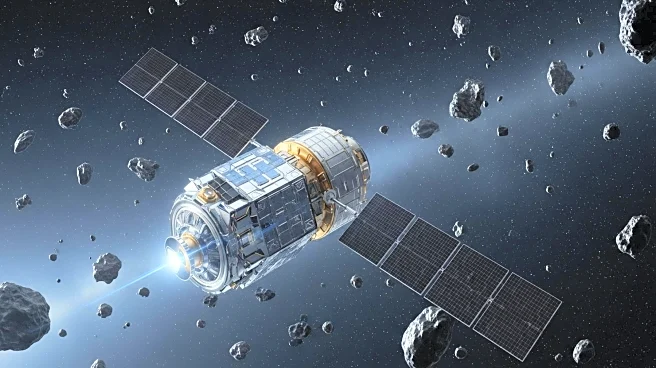What's Happening?
Astroscale has been recognized at the 2025 Gizmodo Science Fair for its innovative satellite designed to address the growing issue of space debris. The ADRAS-J mission, launched on February 18, 2024, aimed to demonstrate the satellite's ability to approach and characterize a defunct spacecraft, specifically targeting Japan's H-2A rocket's upper stage. This piece of space junk has been orbiting Earth for nearly 15 years, posing a potential threat to other spacecraft. The mission successfully approached the debris, capturing images and data despite the challenges of locating and rendezvousing with a non-communicative target. This demonstration paves the way for a follow-up mission that will attempt to physically remove the debris by docking with it and guiding it into Earth's atmosphere to burn up.
Why It's Important?
The presence of millions of pieces of space debris in Earth's orbit poses significant risks to operational spacecraft, with potential for catastrophic collisions. Astroscale's efforts to remove debris and extend the lifespan of satellites contribute to a more sustainable orbital environment. By promoting practices such as satellite inspection, relocation, and refueling, Astroscale is pioneering a shift towards responsible use of space. This initiative not only aims to reduce space junk but also encourages other companies and governments to adopt sustainable practices, potentially leading to regulatory changes and industry-wide standards for space operations.
What's Next?
Astroscale plans to launch its next satellite, ADRAS-J2, in 2027, building on the data and experiences from the ADRAS-J mission. The upcoming mission will focus on actively removing the defunct Japanese rocket from orbit using advanced robotic arm technology. The design phase is currently underway, with hardware testing and spacecraft construction expected to begin next year. This mission represents a significant step towards operational debris removal and could influence future space sustainability efforts.








